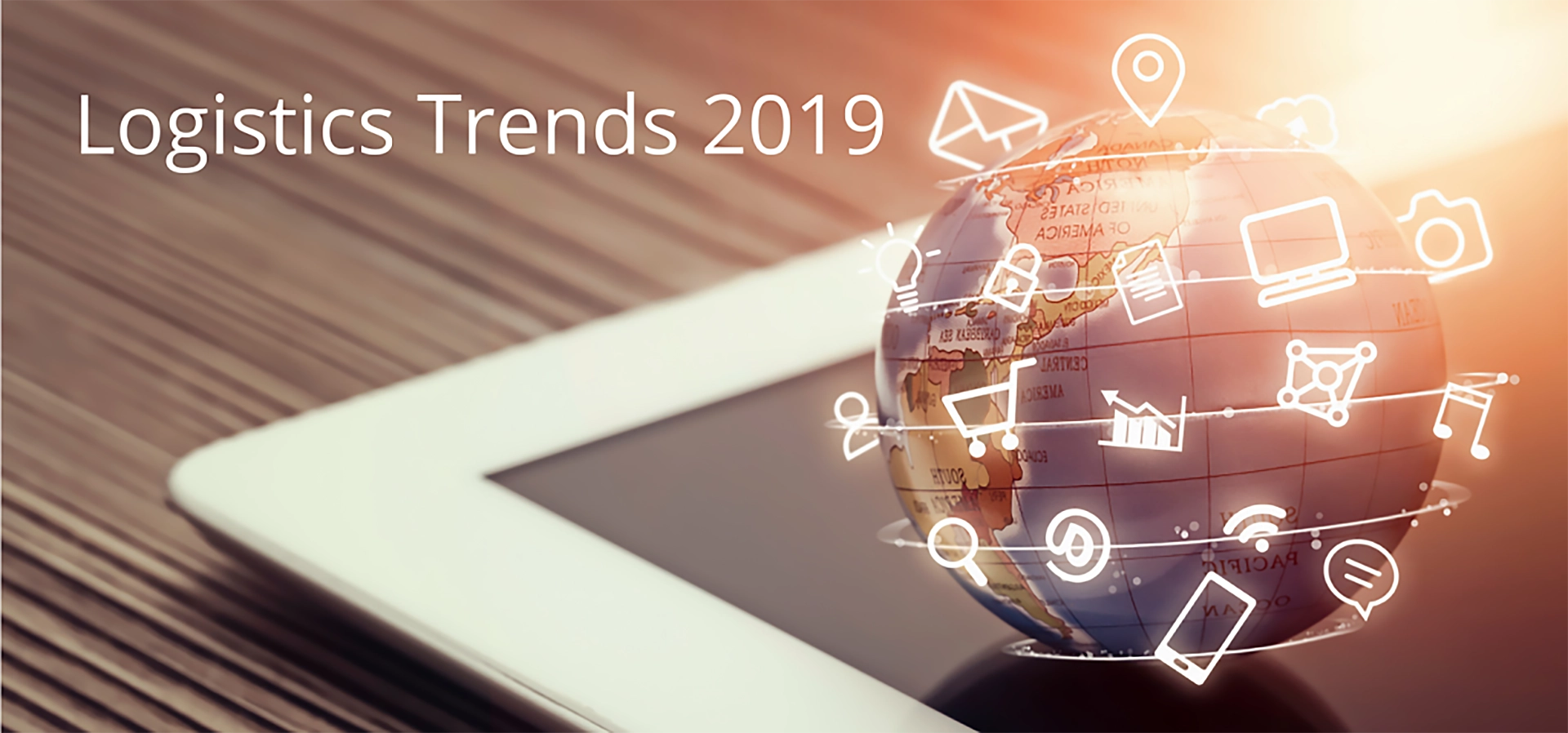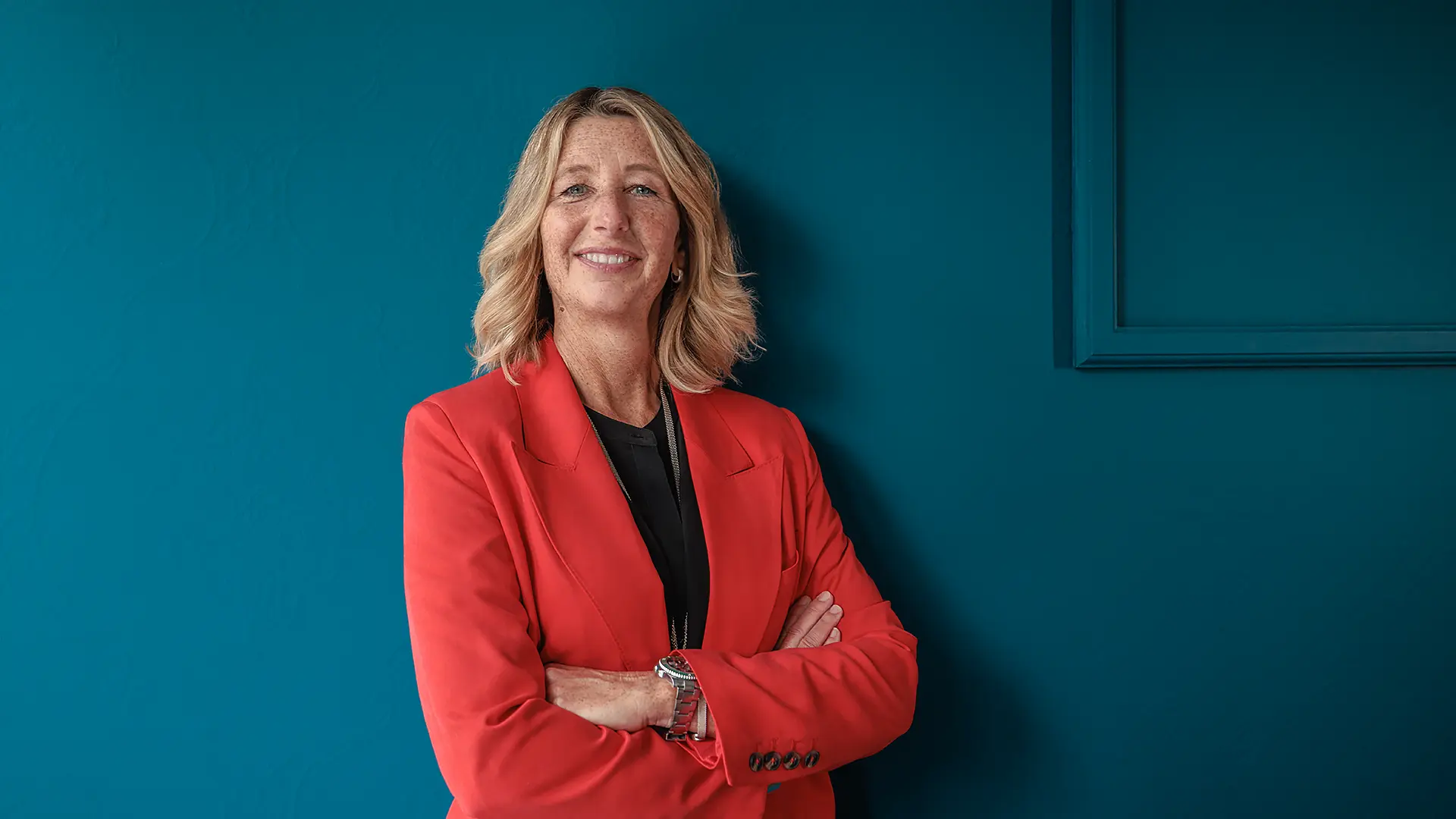Looking Ahead: Which Trends Will Change the Rules of Logistics in 2019?

At this turning point on the cusp of a new year, which I also use to set my own professional goals for 2019, I’m taking the opportunity to look closely at three very relevant and transformational topics: The acceleration of technological change, the changing consumer behavior, and the consequences of urbanization for logistics.
Changing Consumer Behavior and E-commerce
Driven by always-connected tech-savvy shoppers and the need to meet rising consumer expectations, collaboration will increase among retailers, manufacturers, and logistics companies. Today’s customer wants it all and wants it now – online, offline or combined – which is why companies are having to adopt an omnichannel approach.
Trade volumes are shifting away from physical retail outlets to online and mobile platforms. Expectations are rising and customers want ever-shorter delivery times, greater flexibility, and more individualization from e-commerce transactions. Same-day delivery will become the new normal, using drones, crowdsourced delivery, and networks of drivers. Warehouses will move closer to demand and will be shared and highly automated. In these scenarios, we can agree that data intelligence will be key.
It’s also clear to me that consumers are increasingly prioritizing experiences over possessions – that’s why we are seeing a new willingness to participate in the sharing economy. This creates a huge potential for the supply chain. We as logistics leaders need to think about how to operationalize this.
Acceleration of Technological Change
In recent years, technological innovations have rapidly multiplied and expanded. As business leaders, it is very important to recognize and understand the technologies that are pushing the pace of change in the logistics industry.
As I talked about, in one of my last articles, the impact of IoT on logistics will be substantial. For example, I anticipate fewer re-delivery attempts, more dynamic and customized delivery services, optimized shipment tracking and condition monitoring, smart yard management, and predictive maintenance. I am absolutely certain that IoT will enable further innovations with the power to fundamentally change the design of supply chain models.
Artificial intelligence (AI) autonomous vehicles, robots and robotic process automation (RPA) are going to be game changers for logistics by saving time, energy and materials while improving quality, accuracy, and speed. Non-automated warehouses are very likely to disappear in the course of the establishment of a fully digitalized supply chain.
Digitalization is not only giving birth to new technologies but is also giving different markets the opportunity to leverage digital infrastructure for their business models. In logistics, new platform-based business models have the power to eliminate intermediation. Instead of doing things the old way – allowing 3PLs to plan, coordinate, and match each shipper’s transport demands with carriers – manufacturers, suppliers, and retailers can now communicate and transact business directly with carriers on digital freight platforms (DFPs).
These new virtual marketplaces for freight allow companies to by-pass DHL and other service providers entirely, reducing costs and increasing transparency. I am convinced that the proliferation of these disruptive models will have to make big players in the industry radically rethink their approaches. You can see some more details on this in my blog Digital Freight Platforms and Blockchain: The Future of Road Freight?
Urbanization
The number of megacities is growing steadily – over 30 so far, each with more than 10 million inhabitants – and one more will form roughly every year to an estimated 48 megacities by 2035. The urbanization trend is creating new consumer demand patterns and this is having a powerful impact on logistics, a topic I’ll return to in the new year. There are many logistics challenges in crowded cities, such as traffic congestion and pollution.
As business leaders in logistics, we have an important responsibility here: We need to establish solutions that effectively tackle these issues while also delivering more customer centricity, asset pooling, and sustainability. As I see it, the outcome of this will be a better quality of life for urban residents and enhanced productivity and economic output.
Outlook
Logistics is changing. We need to be agile in our approach, to be early adopters, and accept any failures along the way as opportunities to learn. By asking the right questions now, it is possible to see which technological skills we should be investing in, which cultural changes are necessary to survive and what tomorrow’s customer might demand.
With that in mind, my personal goals for 2019 are that I plan to push the transformational journey even further by challenging the status quo, innovating, embracing new relevant technologies, as well as taking calculated risks. Within the group, I intend to champion change towards an increasingly digital mindset, an agile working environment, and a diversity-conducive culture. Digitalization certainly has more in store for us for 2019 – how well we deal with it all depends on our attitude. I will continue enjoying what I do and keep smiling.
I would like to thank my community for inspiring and motivating me throughout 2018. Wishing you and your loved ones peace and happiness throughout this holiday season, and I’m looking forward to sharing more insights and discussion in the year ahead.
As always, I am very interested to hear your points of view so please add to the conversation by using the comments box below or via LinkedIn and Twitter.






